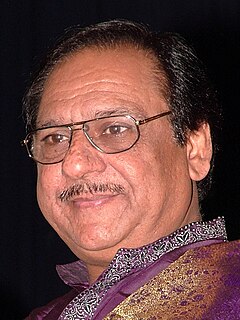
Ustad Ghulam Ali is a Pakistani ghazal singer of the Patiala Gharana. He has also been a prominent playback singer in Bollywood. Ghulam Ali was a disciple of Bade Ghulam Ali Khan. Ali was also trained by Bade Ghulam Ali's younger brothers – Barkat Ali Khan and Mubarak Ali Khan.
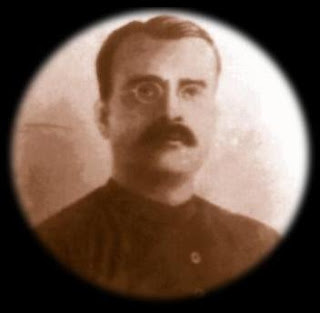
Brij Narayan Chakbast, also spelled as Brij Narain Chakbast, was a British Indian Urdu poet.
Harishankar Parsai was an Indian writer who wrote in Hindi. He was a noted satirist and humorist of modern Hindi literature and is known for his simple and direct style. He wrote vyangya (satire), which described human values and nature. They reflected his critical thinking and humorous way of describing simple things with huge meanings.
Sharad Joshi was an Indian poet, writer, satirist and a dialogue and scriptwriter in Hindi films and television. He was awarded the Padma Shri in 1990.
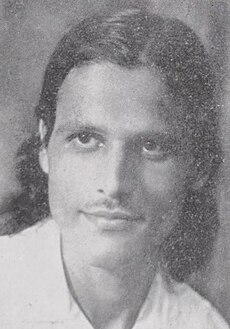
Kavi Pradeep, was an Indian poet and songwriter who is best known for his patriotic song "Aye Mere Watan Ke Logo" written as a tribute to the soldiers who had died defending the country during the Sino-Indian War.
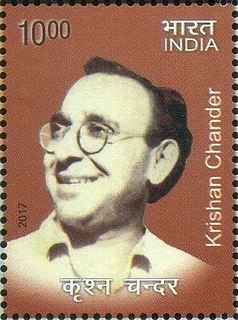
Krishan Chander was an Indian Urdu and Hindi writer of short stories and novels. Some of his works have also been translated in English. He was a prolific writer, penning over 20 novels, 30 collections of short stories and scores of radio plays in Urdu, and later, after partition in 1947, took to writing in Hindi as well. He also wrote screen-plays for Bollywood movies to supplement his meagre income as an author of satirical stories. Krishan Chander's novels have been translated into over 16 Indian languages and some foreign languages, including English.
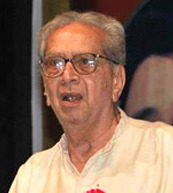
Shriram Lagoo was an Indian film and theatre actor, in Hindi and Marathi, in addition to being an ENT Surgeon. He was known for his character roles in films. He acted in over 250 films including Hindi and Marathi films as well as Hindi, Marathi and Gujarati plays, and directed over 20 Marathi plays. He was also very vocal and active in furthering progressive and rational social causes, for example in 1999, he and social activist G. P. Pradhan undertook a fast in support of anti-corruption crusader Anna Hazare. He won the 1978 Filmfare Award for Best Supporting Actor for the Hindi film Gharaonda. His autobiography is titled Lamaan (लमाण), which means "the carrier of goods".
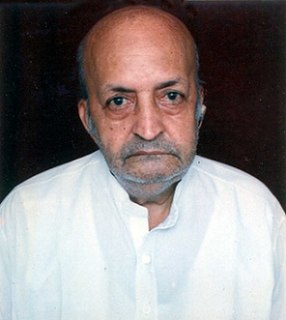
Lalji Pandey, better known by the pen name of Anjaan, was an Indian lyricist known for his work in Hindi language films. Having penned over 1,500 songs for more than 300 films, he is remembered for tracks from his frequent collaborations with composers Kalyanji–Anandji, Laxmikant-Pyarelal, R. D. Burman and Bappi Lahiri. Lyricist Sameer is his son.
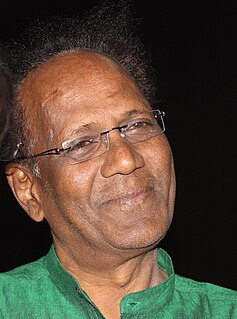
Virendra Saxena is an Indian actor who works in Hindi theatre, film, and television. He is an alumnus of the National School of Drama. Saxena is known for his character roles as well as his unique voice. He has acted in more than 80 Indian films and a few English-language films such as White Rainbow, Cotton Mary and In Custody. Prominent TV serials he has acted in include Ajnabi and Jassi Jaissi Koi Nahin.
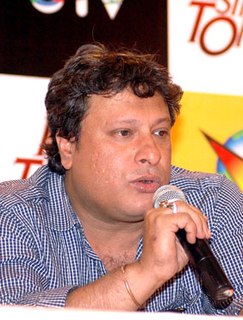
Tigmanshu Dhulia is an Indian film dialogue writer, director, actor, screenwriter, producer and casting director known for his works in Hindi cinema and Television. He wrote the dialogue for the 1998 film Dil Se.., the first Bollywood film to chart in the UK top ten, and screened at the Berlin International Film Festival. His directing career has also garnered international recognition with the biographical film, Paan Singh Tomar premiered at the 2010 BFI London Film Festival. and the thriller drama Saheb, Biwi Aur Gangster.

Ghulam Mustafa Durrani was an Indian radio drama artist, playback singer, actor and music director.

Ganesh Acharya is an Indian choreographer, film director, and actor who prominently works in Bollywood.
Krishan Mohan was an Indian Urdu poet who gained prominence after India gained independence from the British Raj.
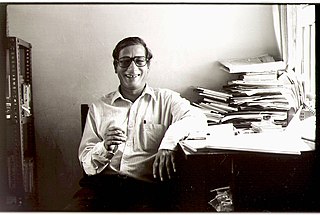
Manglesh Dabral was an Indian Hindi poet and journalist. He was associated with Hindi-language newspapers including Jansatta, Hindi Patriot, and Purvagrah. Some of his popular works include Pahar Par Lalten, Ghar Ka Rasta, and Kavi Ka Akelapan. He was a recipient of the Sahitya Akademi Award in 2000 for his anthology Ham Jo Dekhte Hain.
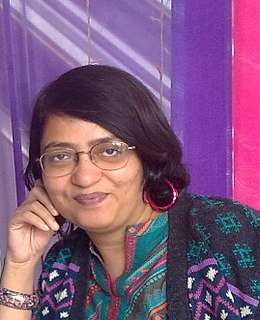
Neelam Saxena Chandra is an Indian poet and author. She has written children's stories and poetry in English and Hindi.
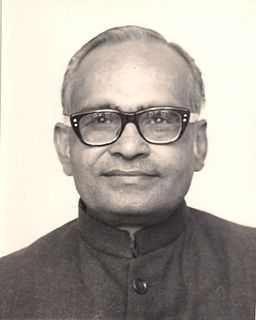
Ramavtar Tyagi, popularly known as "Tyagi", was a Hindi poet.

Suryakumar Pandey is an Indian poet, humorist, satirist and writer. During his literary career, Suryakumar Pandey has contributed to various genres of Hindi literature including Hasya Kavita, Vyangya (satire) and Bal Kavita etc. He is most recognized as a Hasya kavi and for his distinctive style and language of hasya kavita Popularly known as Pandeyji, he is also well known for his Hāsya kavita recitations at Hindi kavi sammelans both in India and globally.

Pankaj Prasun is a Hindi poet, satirist, humorist and author from India. He is known for his unique style and language of humorous Hindi poetry in India. His weekly column "Prasun Ke Punch" published in Navbharat Times news paper. He is in the organizing team committee in Lucknow Literary Festival.

Sarvesh Asthana is an Indian poet, writer and satirist, who writes and performs in the Hindi language. He has authored around 12 books. Asthana has contributed to various genres of Hindi literature, including Hasya Kavita, Vyangya (satire) and Bal kavita. He was honored with the Yash Bharati, the highest civilian award of the Government of Uttar Pradesh for his contribution in the field of literature in 2016. He is also the recipient of the Sohan Lal Dwivedi Award by the Uttar Pradesh Hindi Sansthan, Government of Uttar Pradesh. Asthana was appointed the Advisor to the Indian Council for Cultural Relations (ICCR) in 2019.















